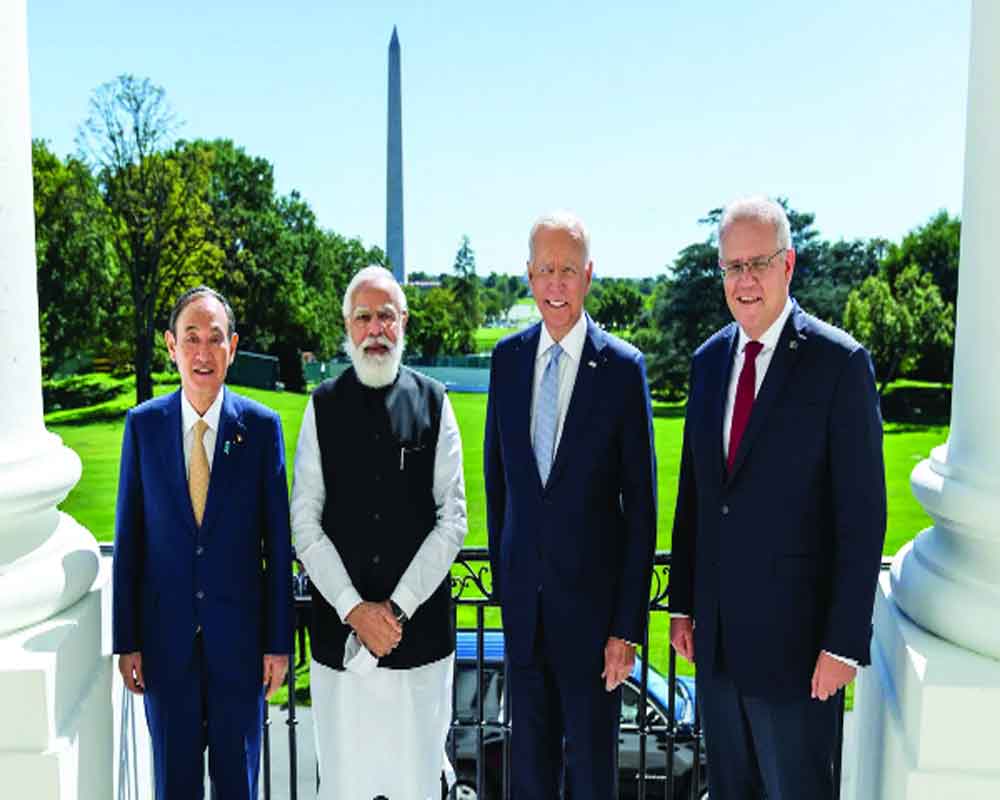India has emerged as one of the key players in the international arena without compromising its basic premise
This year marks 75 years of India's independence and a moment that is being cherished and celebrated. But then, like with all celebrations, we must look back and take stock of the journey traveled so far and also chart our future course of action. Foreign policy is one of those areas that usually see continuity over long periods of time, the political changes notwithstanding. The Indian story is similar in the sense that one sees continuity for a long period since 1947, for instance, India's commitment to a non-aligned status, among others. But with the political scenario changing in the last decade or so, the contours of foreign policy have also seen some major changes. A few have been bold while others have been more of a subtle nature.
The biggest change is probably a change in attitude where one sees a more confident India engaging with the world. We have also seen the emergence of late of a number of regional and other informal groupings where India occupies a place of global significance. The Indo Pacific Quad and the West Asia Quad or the I2U2, are recent instances where India is a member along with the United States, of groupings that influence the Indo Pacific and the Middle East. It would also be significant to note here that this would not have been possible without India having done the groundwork in the first place by building strong bilateral ties with member states as diverse as Israel and the United Arab Emirates (UAE) on the one hand, and with countries like Japan and Australia on the other hand.
At the same time, we have to acknowledge the challenges ahead and accept that there are a few headaches that are not going to be easy to resolve. The biggest one of course remains China. While India, under Prime Minister NarendraModi, has pushed more aggressively for a solution to the Chinese problem, an outcome remains elusive. 2020 saw the worst fighting between India and China since 1962, and while India stood its ground, the Chinese have also dug in their heels. To the world, it is evident that China is a power that intends to increase its hold over territory by military and nonmilitary means. Tibet is one example and the tensions we see in Taiwan today post the visit of US House Speaker Nancy Pelosi is another. China looks at itself as the next hegemony on the global stage and with an economy and a military rapidly gaining strength, it remains a headache not just for India but for the world. For India, the additional worry is that China sits on its borders, always threatening and provoking.
Another major shift one sees in recent years has been that of India and its ties with Pakistan. Since 1947, despite the wars and the terrorist attacks from across the border, the general consensus stayed that India must stay engaged with Pakistan. After all, geography is not a matter of choice and the fact that Pakistan is a neighbour will never change, so talk we must. That has undergone a dramatic and bold change. In recent years, India has not shied away from pointing the finger at Pakistan for many of the terrorist attacks in India, bilaterally and globally. India has also gone a step further and now refuses to indulge in talks where the trust deficit is so huge that Indo-Pak talks have been reduced to photo-ops with near zero movements on crucial issues. Since 2019 when terrorist groups based in Pakistan launched attacks in the former Jammu and Kashmir state, India retaliated decisively and since then it is also worth noting that there have been no major terrorist attacks against India from Pakistani soil.
There has of course been a great change in dynamics when it comes to balancing the great old powers, namely Russia and the US. India has traditionally been always closer to Russia but recent years point to a shift. The Indo-US bilateral relationship has grown in strength, which has also attracted criticism that India might be investing just too heavily in this relationship. The Russia ties remain strong but the growing Russia -China axis, post-Ukraine crisis, poses a major policy challenge for India. Wheels within wheels and China and Pakistan already share a cozy relationship with some today even referring to Pakistan as nothing more than a satellite state of China. For India the challenge remains to maintain a delicate balance, keeping old friends happy while new friendships are formed.
In the last 75 years, the world has changed and so has India. The world has seen the end of the Cold War and a world shifting from bipolar to unipolar and also stages of a multipolar one. India has shed its old skin too and is ready to embrace the world in a more confident fashion, cognisant of its position on the world stage. But challenges remain some very tough ones like China. How well India navigates these challenges will shape its foreign policy and the country in the decades to follow.
(The author, a Delhi-based journalist and foreign affairs analyst, holds a Masters in International Relations from the American University in Washington DC. In 2009, her book ‘Piercing the Heart: Untold Stories of 26/11’, was published. The views expressed are personal.)


























